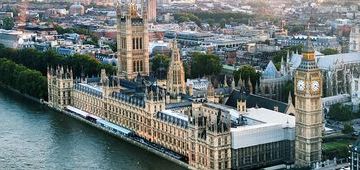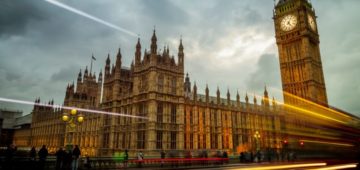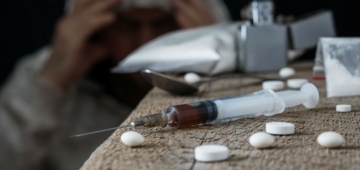- 06 December 2021
The Office of National Statistics (ONS) has released the latest drug-related death statistics for England and Wales. They make for shocking reading.
There were 2,917 deaths related to illicit drugs in 2018 - and increase of 16% on the previous year. This means that about 40 people are now dying every week from illicit drug-related deaths in England and Wales.
- At 51 deaths per million of the population, England and Wales’ drug death rate is now more than double the European average (22 per million) and over 12 times that of Portugal
- Cocaine deaths doubled between 2015 and 2018 and are now at record levels
- Deaths from opiates are also at their highest level ever
- Deaths from New Psychoactive Substances, which were banned in 2016, doubled last year and are back to the level at the time of the ban
- MDMA deaths are now also at their highest rate ever, at 1.5 per million
Claims that increased drug-related deaths are simply the result of an ‘ageing cohort’ of people dying after many years of drug use are far from the full picture. The Home Office has acknowledged that the purity of crack and heroin is increasing, its price is falling and suppliers are using sophisticated marketing techniques to increase demand. At the same time funding for drug treatment has been cut by an average of 27% across England, with the deepest cuts in areas with the most drug-related deaths. Cuts across the board hit older people particularly hard.
These deaths are also the result of the Government refusing to take a health-based approach to drug policy. People of the same age, with the same history of drug use, are not dying at the same rate in countries with more progressive approaches. Portugal, which decriminalised the possession of drugs in 2001, saw just 51 drug-related deaths in 2017. This is about the same as the city of Bristol alone.
Dr James Nicholls, CEO of Transform Drug Policy Foundation said: “These deaths are an avoidable tragedy - and each one represents a brother, sister, parent or friend who has left loved ones behind. After six years of record deaths, the Government must act, with a clear focus on keeping people alive. Current policy is not protecting people or their communities; instead it is blocking measures we know can save lives, while decimating treatment funding. People dependent on drugs don’t die from overdoses in supervised drug consumption rooms or heroin prescribing clinics. We need these approaches to be supported and funded in the UK. We need better funded services, and an end to the criminalisation and stigmatisation of people who use drugs. Ultimately, we need to get drugs under control - and that means regulating them properly, rather than leaving the market in the hands of criminal gangs. Only then will we put an end to the health crisis unfolding around us.’
Shirley Cramer CBE, Chief Executive of the Royal Society for Public Health, said: “This latest rise in drug deaths is further confirmation that our policy-makers do not have the best interests of people dependent on drugs in mind, or those of the communities around them. Unfortunately, the figures are as predictable and avoidable as they are tragic. Countries that have taken public health approaches to drug policy, like Portugal, have seen plummeting death rates, and the evidence for harm reduction interventions is now inarguable. The case for a more compassionate harm reduction approach has now been clear for years – and yet the Government has continued to lead with tough rhetoric around law enforcement, all the while presiding over sustained cuts to local authority budgets, undermining their ability to deliver effective drug treatment services. This outlook is increasingly at odds with the public and the health community, among whom there is now a growing consensus that criminal justice approaches to drug harm have failed, and that we must start treating drugs first and foremost as a health issue.”
Rose Humphries of the Anyone’s Child Project, who lost two sons to heroin overdoses said: “I'd hoped the government would have done some things by now to improve these dreadful statistics. But no, there have been even more deaths than before. It upsets me to see the figures for drug deaths at record levels year after year. The government is complicit in these deaths because it will not try the successful measures that work in other countries to reduce drug deaths and crime. Those of us in the Anyone's Child campaign know about those measures - including legally regulating drugs. Why does the government ignore the evidence? Behind each figure in these latest statistics was a real person, a person who once had hopes and dreams - as did my two sons who were killed by illegal heroin - but they are treated as collateral damage in the government's drug policies. I am so sad for all the families who are left in grief.”



